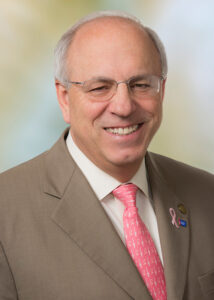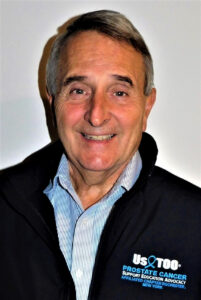By Deborah Jeanne Sergeant

Anyone who has received a clear bill of health after cancer treatments wants to maintain their good health. Although nothing can guarantee cancer won’t come back, people in remission can certainly increase their chances of good healthy by taking a few steps.
“Survivorship is a key part of cancer care,” said Arnold Baskies, chairman of the Global Health Advisory Council, and past chairman of the board of directors, American Cancer Society, Inc. “The Commission on Cancer has recommended that all hospitals and providers provide a survivorship plan to patients. The American Cancer Society also recommends it. It includes information on the treatment rendered and what should be done in terms of follow-up and surveillance.”
Since 14 million people each year in the U.S. have survived cancer — and Baskies estimates it will likely swell to 20 million in the next five to 10 years —developing survivorship plans will only increase in importance.

“The specific recommendations are relative to the type of cancer and treatment rendered,” Baskies said. “A specific survivorship care plan should be personalized.”
For example, a colon cancer survivor may have scheduled colonoscopy and blood tests or for lung surgery, CT scans and other tests. General recommendations typically include healthful diet, exercise, stress management and smoking cessation.
Baskies noted that any time survivors change providers outside their health system, “they need to take with them the information of what treatment they had and what needs to be done going forward.”
Pittsford resident Mark Richardson, 73, received his prostate cancer diagnosis seven years ago.
“When I was diagnosed, it was devastating because I didn’t know anything about it, the risks and side effects of different treatments like surgery, radiation or active surveillance,” Richardson said.
He joined Us Too, a local prostate cancer support group, which helped him learn more before treatment and support his recovery. Richardson found the group’s support so helpful that eventually, he and his wife, Peggy, took over leading the Us Too chapter.
He said that group members often wonder about how to know if the cancer has returned and what symptoms they should look for.
“Emotional health is very important,” Richardson said. “My wife has been my rock in giving me support and encouragement.”
He also cares for his physical health by walking about three miles or using the elliptical machine at the local YMCA. He finds that lower body exercise specifically has helped him improve his pelvic floor muscles.
“Maintaining these increases your ability to hold urine correctly and not leak,” he said. “That’s a huge side effect for radiation and surgery. You don’t need to go nuts being Jack LaLanne or Charles Atlas.”
Richardson also promotes eating a healthful diet with less sugar, fat and processed foods to support overall good health.
He and Peggy tried a completely plant-based, whole food regimen for two weeks, which he said was healthful but difficult to maintain. Since then, he has tried to include more whole foods and increase his intake of produce.
“You don’t want to go into an extreme mode,” he said. “Eating good food allows us to live a long, healthy life but it won’t cure cancer. Modify your diet more for heart health and longevity.”
Richardson also stays hydrated with plenty of water.
Since his diagnosis, he began keeping a journal to notice any lifestyle changes that seemed to help and to track his progress, a practice that he has discovered kept him motivated to stick with positive changes.

